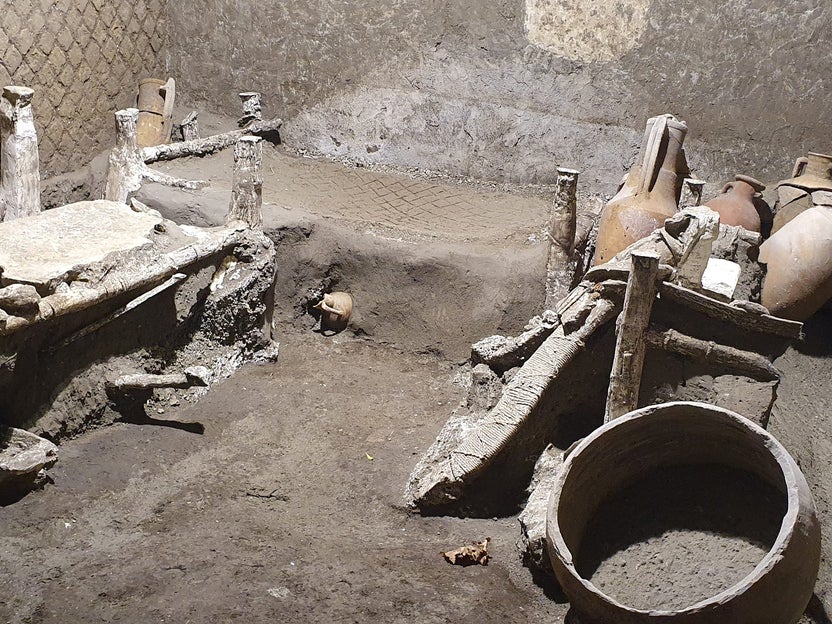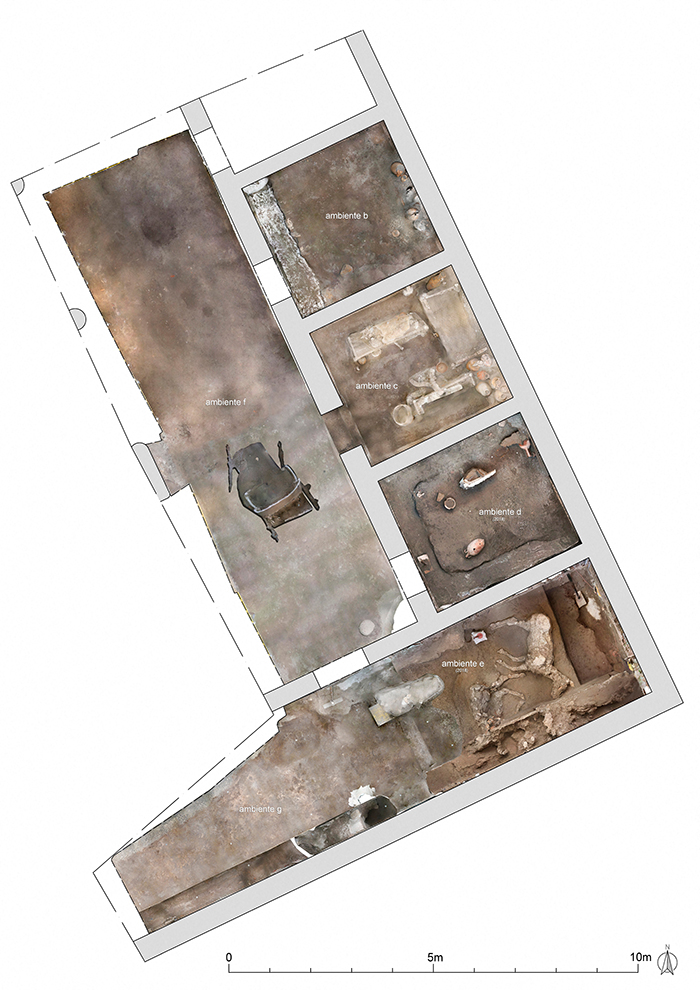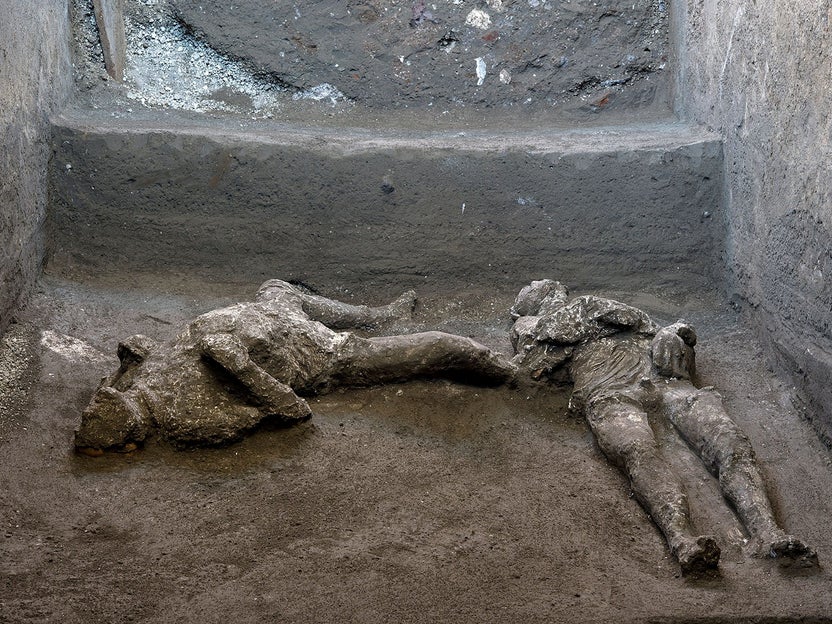An immaculately preserved room, once inhabited by slaves, has been discovered in the ancient Roman city of Pompeii in Italy, said The Archaeological Park of Pompeii.
In the small undecorated room of just 16 sqm remains three beds, a chamber pot that would have been used as a toilet, a wooden chest containing horse harnesses, and a single small window. A shaft of a chariot was also found, suggesting the slaves also used their room as workspace mending their master's vehicle, reported The Guardian.
One of the beds would have belonged to a child.

The archaeologists credit the "incredible preservation" of the room to the huge eruption of Mount Vesuvius in CE 79, which obliterated the Roman city of Pompeii.
Gabriel Zuchtriegel, director-general of Pompeii's archaeological park, hailed the findings on the Pompeii website as a "window into the precarious reality of people who seldom appear in historical sources."
He added that the discovery was "exceptional" and "it is certainly one of the most exciting discoveries during my life as an archaeologist."
"The true treasure here is the human experience, in this case of the most vulnerable members of ancient society, to which this room is a unique testimony," said Zuchtriegel.
The Civita Giuliana villa, outside the Pompeii city walls, was first excavated in 2017, and since then several stunning finds have been uncovered, including a ceremonial chariot and a stable.

In November 2020, the team at the Archaeological Park of Pompeii was able to use the remains of human life at the villa and create replica plaster casts of two humans who died there in the Vesuvius eruption.
In this expedition, two bodies were found, thought to be a master and slave.

The bodies were lying close together in an underground chamber of a villa also in Civita Giuliana, Insider's Rachel Hosie has the full story.
The ruins of Pompeii were first discovered in the 16th century, with over 1,500 of the estimated 2,000 victims having now been found.



No comments:
Post a Comment